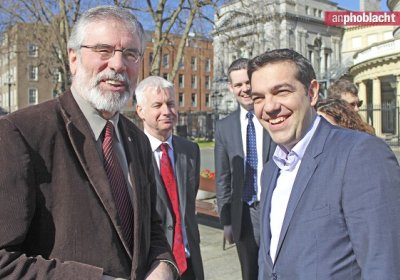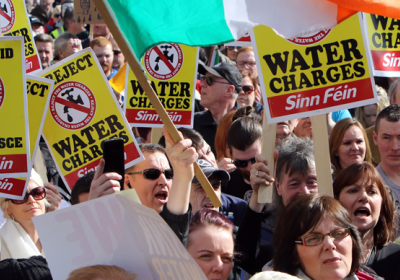Northern Ireland is in the grip of a deep political crisis.
The power-sharing administration in the six northern Irish counties still claimed by Britain between the Irish republican party Sinn Fein and the pro-British Democratic Unionist Party (DUP) collapsed when Sinn Fein Deputy First Minister Martin McGuinness resigned on January 9 and called for new elections.
Explaining his decision to resign, McGuinness cited “growing DUP arrogance and lack of respect, whether that was for women, our LGBT community, ethnic minorities or the Irish-language community and identity.”


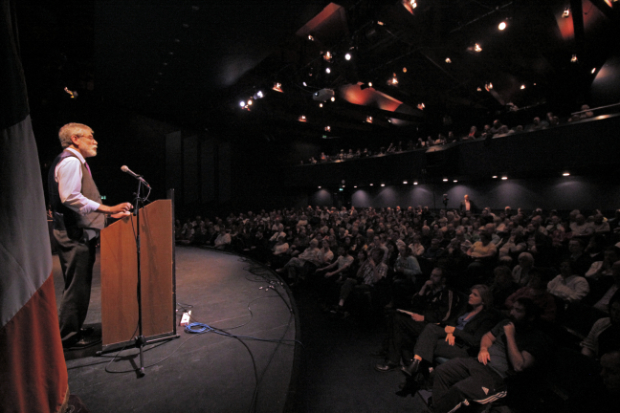 Sinn Fein president Gerry Adams addresses the June 29 rally for Irish unity.
Hundreds of people packed into the Liberty Hall Theatre in Dublin on June 29 as calls for a referendum on a united Ireland continue to grow following Britain's June 23 vote in favour of leaving the European Union.
It came after the six counties in Ireland's north still claimed by Britain voted to stay in the EU.
Sinn Fein president Gerry Adams addresses the June 29 rally for Irish unity.
Hundreds of people packed into the Liberty Hall Theatre in Dublin on June 29 as calls for a referendum on a united Ireland continue to grow following Britain's June 23 vote in favour of leaving the European Union.
It came after the six counties in Ireland's north still claimed by Britain voted to stay in the EU.
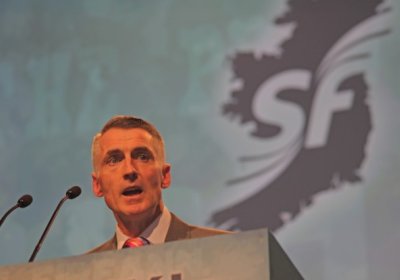
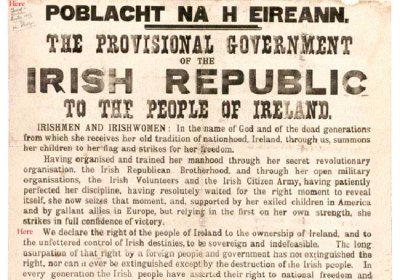
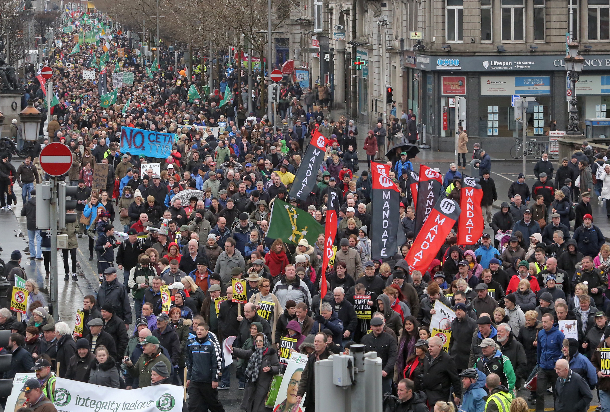 80,000 people marched in Dublin on February 20 to call for a "government of change" ahead of the February 26 elections. Photo via An Phoblacht.
In a sign of popular anger, the combined vote of the two parties that have long dominated the southern Irish state — Fine Gael (FG) and Fianna Fail (FF) — has fallen below 50% for the first time in Irish electoral history.
80,000 people marched in Dublin on February 20 to call for a "government of change" ahead of the February 26 elections. Photo via An Phoblacht.
In a sign of popular anger, the combined vote of the two parties that have long dominated the southern Irish state — Fine Gael (FG) and Fianna Fail (FF) — has fallen below 50% for the first time in Irish electoral history.


